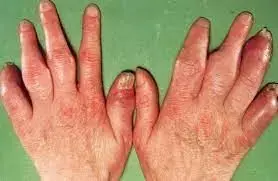- Home
- Medical news & Guidelines
- Anesthesiology
- Cardiology and CTVS
- Critical Care
- Dentistry
- Dermatology
- Diabetes and Endocrinology
- ENT
- Gastroenterology
- Medicine
- Nephrology
- Neurology
- Obstretics-Gynaecology
- Oncology
- Ophthalmology
- Orthopaedics
- Pediatrics-Neonatology
- Psychiatry
- Pulmonology
- Radiology
- Surgery
- Urology
- Laboratory Medicine
- Diet
- Nursing
- Paramedical
- Physiotherapy
- Health news
- Fact Check
- Bone Health Fact Check
- Brain Health Fact Check
- Cancer Related Fact Check
- Child Care Fact Check
- Dental and oral health fact check
- Diabetes and metabolic health fact check
- Diet and Nutrition Fact Check
- Eye and ENT Care Fact Check
- Fitness fact check
- Gut health fact check
- Heart health fact check
- Kidney health fact check
- Medical education fact check
- Men's health fact check
- Respiratory fact check
- Skin and hair care fact check
- Vaccine and Immunization fact check
- Women's health fact check
- AYUSH
- State News
- Andaman and Nicobar Islands
- Andhra Pradesh
- Arunachal Pradesh
- Assam
- Bihar
- Chandigarh
- Chattisgarh
- Dadra and Nagar Haveli
- Daman and Diu
- Delhi
- Goa
- Gujarat
- Haryana
- Himachal Pradesh
- Jammu & Kashmir
- Jharkhand
- Karnataka
- Kerala
- Ladakh
- Lakshadweep
- Madhya Pradesh
- Maharashtra
- Manipur
- Meghalaya
- Mizoram
- Nagaland
- Odisha
- Puducherry
- Punjab
- Rajasthan
- Sikkim
- Tamil Nadu
- Telangana
- Tripura
- Uttar Pradesh
- Uttrakhand
- West Bengal
- Medical Education
- Industry
Dactylitis tied with higher disease burden in early psoriatic arthritis: BMJ

Dactylitis signals greater disease burden in early psoriatic arthritis, according to a recent study published in the Annals of the Rheumatic Diseases.
A group of researchers conducted a study to characterise the impact of dactylitis in disease-modifying antirheumatic drug (DMARD)-naive early psoriatic arthritis (PsA).
Patients with early PsA meeting the classification criteria for PsA (CASPAR) were recruited. Clinical outcomes were recorded, and ultrasonography was conducted to assess grey scale (GS) and power Doppler (PD) synovitis, periarticular cortical bone erosions and enthesitis. The cohort was dichotomised by the presence or absence of dactylitis.
The Results of the study are:
Of 177 patients with PsA, those with dactylitis (dactylitic PsA (81/177, 46%)) had higher tender joint count (p<0.01), swollen joint count (SJC) (p<0.001) and C reactive protein (CRP) (p<0.01) than non-dactylitic PsA. Dactylitis was more prevalent in toes (146/214 (68.2%)) than fingers (68/214 (31.8%)); 'hot' dactylitis was more prevalent than 'cold' (83.6% vs 16.4%). Ultrasound (US) synovitis and erosions were significantly more prevalent in dactylitic PsA (p<0.001 and p<0.001, respectively). Exclusion of dactylitis in dactylitic PsA confirmed significantly greater SJC (3 vs 1, p=0.002), US synovitis (GS ≥2: 20.6% vs 16.1%, p<0.001, or PD ≥1: 5.1% vs 3.3%, p<0.001) and erosions (1.1% vs 0.5% joints, p=0.008; 26.1% vs 12.8% patients, p=0.035%) than non-dactylitic PsA. Synovitis (GS ≥2 and/or PD ≥1) occurred in 53.7% of dactylitis. No substantial differences were observed for US enthesitis.
Thus, the researchers concluded that dactylitis signifies a more severe disease phenotype independently associated with an increased disease burden with greater SJC, CRP, US-detected synovitis and bone erosions in DMARD-naive early PsA and may be a useful discriminator for early risk stratification.
Reference:
Dactylitis is an indicator of a more severe phenotype independently associated with greater SJC, CRP, ultrasound synovitis and erosive damage in DMARD-naive early psoriatic arthritis by Sayam Dubash et al. Annals of the Rheumatic Diseases.
https://ard.bmj.com/content/early/2021/12/09/annrheumdis-2021-220964
Dr. Shravani Dali has completed her BDS from Pravara institute of medical sciences, loni. Following which she extensively worked in the healthcare sector for 2+ years. She has been actively involved in writing blogs in field of health and wellness. Currently she is pursuing her Masters of public health-health administration from Tata institute of social sciences. She can be contacted at editorial@medicaldialogues.in.
Dr Kamal Kant Kohli-MBBS, DTCD- a chest specialist with more than 30 years of practice and a flair for writing clinical articles, Dr Kamal Kant Kohli joined Medical Dialogues as a Chief Editor of Medical News. Besides writing articles, as an editor, he proofreads and verifies all the medical content published on Medical Dialogues including those coming from journals, studies,medical conferences,guidelines etc. Email: drkohli@medicaldialogues.in. Contact no. 011-43720751


